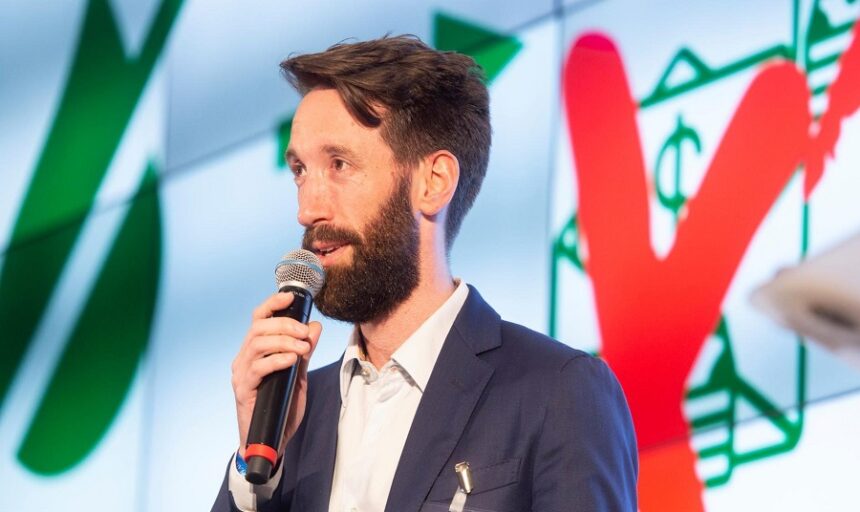Malian startup OKO has secured a new funding round worth thousands of dollars led by Catalyst Fund, alongside two existing investors, to expand its crop insurance services across Africa.
The company, founded in 2017, develops mobile-based insurance products tailored for smallholder farmers, offering them a financial safety net against unpredictable weather patterns.
With operations now in five African countries and more than 33,000 farmers already insured, OKO says this new support will strengthen its partnerships with banks, agritechs, and agro-industries, embedding climate protection into farming at scale.
“We are incredibly proud to have Catalyst Fund lead this round,” said Simon Schwall, CEO of OKO.
“With climate volatility intensifying across Africa, insurance is no longer optional, it’s essential. This support allows us to expand our reach and enable partners to better serve farmers with data-driven climate risk management solutions.
What OKO Does
OKO operates at the intersection of technology and agriculture. By providing affordable, mobile-based crop insurance, the startup ensures that smallholder farmers, who often lack access to traditional financial safety nets, can receive compensation when their crops fail due to extreme weather.
Farmers use simple mobile phone services to register, pay premiums, and claim compensation. Unlike conventional insurance models that are slow and bureaucratic, OKO leverages satellite weather data and automated systems to quickly assess claims and trigger payouts.
This approach not only saves time but also builds confidence. Every validated claim so far has been paid in full, which has significantly increased trust among farming communities.
For farmers living on the edge of financial survival, this reliability can mean the difference between abandoning farming after a disaster and reinvesting in the next planting season.
OKO’s Agro Agenda for African Continent
Beyond insurance, OKO’s vision is to integrate climate resilience into the entire agricultural value chain. This means working directly with banks, agritechs, and large agro-industries to embed insurance into credit packages, input supplies, and produce sourcing.
For example, a farmer taking a loan for seeds could automatically be covered by OKO’s insurance, ensuring both the farmer and the lender are protected from losses if weather patterns turn destructive.
By providing this risk-sharing model, OKO reduces financial uncertainty across the food production chain.
This not only empowers smallholder farmers but also encourages larger investors and agribusinesses to keep funding African agriculture, despite the mounting risks posed by climate change.
The Founding and Funding of OKO
Established in 2017, OKO began operations in Mali and has since expanded into Ivory Coast, Uganda, Mozambique, and Angola. Its growth has been fuelled by investors who see climate insurance as a crucial tool for Africa’s economic resilience.
The latest funding round, led by Catalyst Fund, underscores confidence in OKO’s ability to scale a solution already proven on the ground.
Catalyst Fund is known for backing ventures that tackle systemic global challenges. In explaining the decision to invest, Maxime Bayen, operating partner at Catalyst Fund, said:
“OKO’s technology provides a powerful solution to a pressing global problem. We believe their platform is a game-changer for financial institutions and agribusinesses seeking to mitigate risk while supporting the agricultural backbone of Africa.”
Who Is Benefitting?
So far, OKO has insured more than 33,000 farmers, offering them a practical shield against financial ruin. These farmers are not limited to Mali but also spread across East, West, and Southern Africa.
For most of them, a single failed harvest could erase years of progress. With insurance, however, they can access immediate relief and avoid sinking into debt or poverty.
In regions where up to 70 percent of households depend on agriculture, according to the Food and Agriculture Organization (FAO), such financial tools are transformative.
Farmers who once feared the uncertainty of erratic rainfall or destructive floods now have a mechanism that allows them to keep farming, feed their families, and contribute to national food security.
Why This Matters
The stakes could not be higher. The African Development Bank (AfDB) warns that climate change could cut agricultural yields by as much as 30 percent by 2050, putting both food security and livelihoods at risk.
Sub-Saharan Africa, home to the largest share of smallholder farmers globally, is already experiencing these impacts with shorter rainy seasons, prolonged droughts, and unprecedented floods.
Insurance models like OKO’s are not a silver bullet but represent a critical buffer. By absorbing some of the shocks, they allow farmers to continue producing food and protect rural economies from collapse.
As Schwall notes, “Our commitment is to make climate insurance and other resilience tools accessible to both small and large businesses in Sub-Saharan Africa. This new support is a validation of our mission to close the climate protection gap.”
The Bigger Picture
The importance of OKO’s work extends beyond farmers. Agriculture contributes up to 23 percent of Sub-Saharan Africa’s GDP, and smallholder farmers produce about 80 percent of the continent’s food, according to the World Bank.
Yet, less than 3 percent of African farmers have access to formal insurance, leaving millions exposed to catastrophic loss.
By using mobile technology and automated climate data, OKO is bridging this protection gap in a way that is both scalable and inclusive. Its model demonstrates that insurance, once seen as a luxury for wealthy economies, can be reimagined as a survival tool for millions of vulnerable farmers.
With this new funding, the startup is positioning itself as a cornerstone of Africa’s climate adaptation strategy, proving that resilience can be built from the ground up, one farmer at a time.






